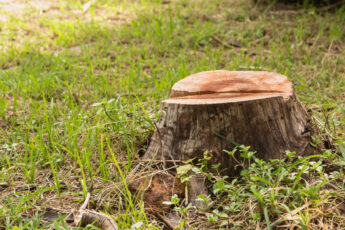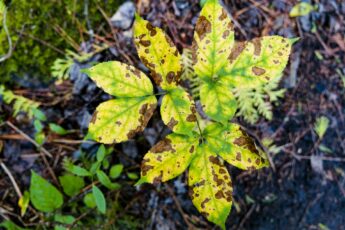Gardeners worldwide face certain obstacles on their way to creating a successful and profitable company. One of the most important issues is weed control and water conservation. These are the most important factors that directly impact productivity and agricultural production. Mulch helps control weeds in crops by reducing weed seed germination, suppressing weed growth, and benefiting crops by conserving soil moisture and, in some cases, reducing soil temperature. Organic mulch, such as straw, reduces annual weed emergence, retains moisture and adds organic matter as it decomposes, although it requires more labor. This article delves into the science behind mulching, exploring how it protects plants and suppresses weeds, and highlights relevant research and statistics that underscore its effectiveness.
The Basics of Mulching
Mulch can be organic (e.g., straw, wood chips, compost) or inorganic (e.g., plastic sheeting, gravel). Each type has specific uses and benefits, but the underlying principles remain consistent. The primary functions of mulch are to conserve soil moisture, improve soil health, regulate soil temperature, and suppress weed growth.
Benefits of Mulching
Mulching offers several scientific benefits contributing to healthier plants and more efficient gardening.
Moisture Retention
Mulch is a barrier between the soil and the atmosphere, reducing water evaporation. This helps maintain consistent soil moisture levels, which is crucial for plant health. Soil covered with mulch can retain up to 25% more moisture than bare soil, reducing the need for frequent watering.
Temperature Regulation
Mulch insulates the soil, protecting plant roots from extreme temperatures. In the summer, mulch keeps the soil cooler by reducing heat absorption. In the winter, it helps retain soil warmth, preventing freeze-thaw cycles that can damage plant roots. This temperature regulation creates a more stable environment for plant growth.
Soil Enrichment
As organic mulch decomposes, it adds organic matter to the soil, improving its structure, aeration, and fertility. This process increases the soil’s capacity to retain water and nutrients, promoting healthier plant growth. Decomposing mulch also encourages the activity of beneficial soil organisms, such as earthworms and microbes, which further enhance soil health. A study by the University of California Agriculture and Natural Resources found that soils mulched with organic materials had 15-25% higher microbial activity compared to non-mulched soils. This microbial activity is crucial for nutrient cycling and soil health.
Weed Suppression
Mulch suppresses weed growth by blocking sunlight, which is necessary for germination and growth. A thick layer of mulch can reduce weed emergence by up to 90%. This reduces competition for nutrients, water, and light and minimizes the need for chemical herbicides, promoting a more eco-friendly gardening practice.
Erosion Control
Mulch helps prevent soil erosion by protecting the soil surface from the impact of raindrops and wind. This is particularly important in areas with heavy rainfall or strong winds. By stabilizing the soil, mulch helps maintain soil structure and fertility.
Types of Mulch and Their Specific Benefits
- Organic Mulches:
- Compost: Improves soil fertility and structure and provides essential nutrients.
- Straw: Excellent for moisture retention and weed suppression, often used in vegetable gardens.
- Wood Chips/Bark: Long-lasting for paths and around perennial plants, decomposes slowly to add organic matter.
- Inorganic Mulches:
- Plastic Sheeting: Effective for moisture retention and weed suppression, commonly used in commercial agriculture.
- Gravel: Good for decorative purposes, improves drainage, and provides a permanent solution for weed control in certain areas.
How to Apply Mulch
There are right and wrong techniques for applying mulch. The most common mistake people make when adding mulch is to use more. A two—to three-inch layer of mulch is required to suppress weeds and maintain soil moisture. Weed seeds will germinate if the mulch is less than two inches thick.
In addition to applying the appropriate mulch, make sure it does not weigh on your plants. Remove mulch from tree trunks, bushes and crowns of annuals, perennials and vegetable plants. Give your plants about an inch or so of space. When mulch is applied to a plant, it can retain moisture and cause it to rot.
Organic mulch, which breaks down and improves the soil, must be updated regularly. Plan to add an extra inch of mulch to your garden each year in the spring or fall.
A covering of mulch can improve every aspect of your garden. Whether you have ready-made supplies like grass clippings or leaves or decide to buy them in bulk or in bags at your local garden center, the most important thing is to use them—your plants and soil will thank you!
Research and Statistics
Numerous studies have highlighted the efficacy of mulching in different contexts:
- Water Conservation: Research by the University of California found that mulching reduced the need for irrigation by 25-50% in various crops.
- Crop Yield Improvement: A study published in Agricultural Water Management demonstrated that mulched tomato plants yielded 20% more fruit than non-mulched plants.
- Soil Erosion Prevention: The Journal of Environmental Management reported that mulching reduced soil erosion by up to 86% on slopes.
Potential Drawbacks and Considerations
While mulching offers numerous benefits, there are potential drawbacks that gardeners should be aware of.
Excess Moisture
Mulch can retain too much moisture in areas with high rainfall, leading to root rot and other fungal diseases. It is important to ensure proper drainage and avoid overwatering.
Pest Attraction
Some organic mulches, like straw or wood chips, can attract pests like slugs, snails, or termites. Choosing the right type of mulch and monitoring for pests can mitigate this issue.
Soil pH Impact
Certain mulches, such as pine needles, can alter soil pH, making it more acidic. Gardeners should select mulch types appropriate for their soil and plants or test soil pH regularly to manage changes.
Cost
The cost of mulch varies depending on whether it is supplied and installed. Typically, cost savings increase with volume—the more you order, the lower the average cost per cubic yard. Inorganic mulch is more expensive but does not break down as quickly as biological mulch, making it more cost-effective in most cases.
Reasons to Hire Professionals
Hiring expert mulching services can provide numerous benefits, such as improved soil health, reduced weed development, and increased plant growth and productivity.
- Expertise. Professional mulching services have the knowledge and experience to select the best mulch for your individual soil and plant needs. They can select and apply the best mulch for soil health, moisture retention, weed control, and temperature regulation.
- Equipment. Professionals will have the proper equipment and tools to apply the mulch correctly and evenly. This can be a time-consuming and physically tiring task, especially in large areas, so hiring a professional can help save time and effort.
- Application. A professional can ensure that the mulch is applied to the correct depth and density, as adding too much or too little can harm the soil and plant health. They can also ensure that mulch is evenly distributed around plants and trees, preventing root damage.
- Ongoing Maintenance. Professionals can provide ongoing maintenance and support to ensure the mulch works properly and produces desired results. This may entail frequent inspections and modifications and the removal and replacement of old or damaged mulch.
Our team of professionals is always ready to help you. Contact us for a free quote. We are ready to serve you!
Conclusion
Mulching is a scientifically proven strategy that benefits plant health and garden maintenance. Mulching is essential for sustainable gardening and farming as it conserves moisture, improves soil health, regulates temperature and suppresses weeds. Whether you use organic or inorganic materials, strategic mulch application can result in healthier plants, higher yields and more efficient use of resources. Choosing the right mulch and applying it correctly can improve soil health, control soil temperature, and conserve water. Whether you’re an experienced gardener or just starting, mulching is a simple and effective strategy for creating a healthy, vibrant garden.







